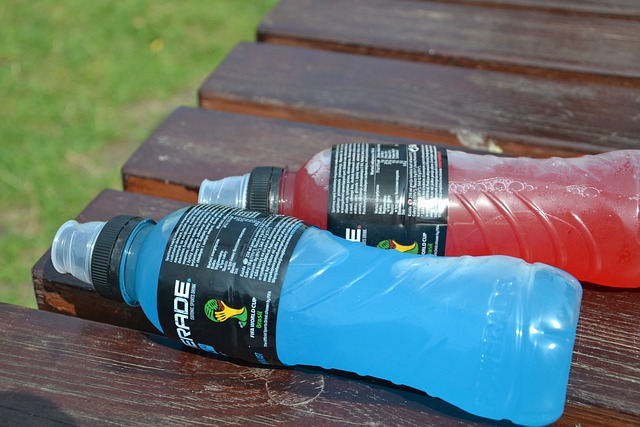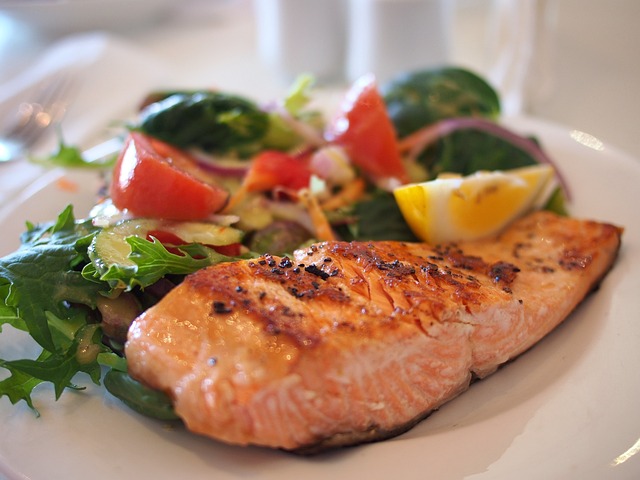We have some recommendations for Nutrition and Hydration When Running.
You will notice a major difference in how you feel throughout a run if you are properly nourished and hydrated. In reality, the mix of water and nutrition can make you feel great or terrible during a run.
Whether you are a newbie or have been running for years, you may have had an incident when you did not adequately hydrate or fuel and suffered during or after your run. It is critical to learn how to stay hydrated and fuelled during a run in order to have a nice experience.
Continue reading to get some tips on how to hydrate and feed your body before, during, and after a run.
If You Are Thirsty, You Should Drink.
Staying hydrated requires drinking enough water. Some people believe that you should drink when your body tells you that you’re thirsty. The principle of drinking to thirst is straightforward: you drink when you are thirsty. You should also drink plenty of water before and during physical activity.
Drinking something like 4 – 8 ounces of water 1 hour before a run. Then another 4 – 8 ounces for every hour of running, should be adequate.
Prehydrating Is Important
It is critical to stay hydrated while jogging. Yet, consuming plenty of fluids before going for a run is just as crucial for keeping your body working smoothly. According to research, 32% to 56% of athletes may be dehydrated prior to training.
Preparation begins the night before. The night before, drink 500 mL of water or a sports drink. When you wake up, drink another 500 mL of water or a sports drink. Then, 20 to 30 minutes before exercising, drink another 400 – 600 milliliters of water or a sports drink.
Prehydration prior to activity is crucial for preventing dehydration, lubricating the joint, regulating body temperature, carrying oxygen and nutrients to our cells, and keeping our organs functioning correctly.
Bring Water
Bringing a bottle of water with you on your run is a smart idea and also acts as a reminder to take sips. Taking sips while jogging is superior to drinking huge amounts all at once. This not only keeps you hydrated, but it is also gentler on your digestive system.
For most people, it’s a good idea to carry 12 – 16 ounces of water for runs lasting 60 – 90 minutes. You might want to consider potential fuel or liquid that contains some electrolytes (mainly salt) and little carbohydrates for runs lasting longer than 90 minutes. This applies both to running and jogging.
Drink at Regular Intervals
When you’re focused on jogging, it’s easy to forget to drink water. There are techniques for staying on track with your water consumption.
If you intend to run for more than 60 to 90 minutes, you should supplement your exercise with electrolytes and carbohydrates to improve your hydration state. Consume 30 – 60 grams of carbs in a 6% to 8% carbohydrate-electrolyte mix (6 to 12 fluid ounces) every 10 to 15 minutes for the duration of the run.
Set a timer for every 15 minutes, or use your mileage as a queue—take a sip per mile.
Sustain Hydration Throughout the Day Drinking plenty of water throughout the day and before your run is an important strategy to stay hydrated.
Being hydrated in the days and hours leading up to the run is one of the best methods to stay hydrated throughout a run. This reduces stress on the body and leads to improved performance.
Electrolyte and Sodium-Rich Drinks
Staying hydrated requires drinking water as well as electrolyte-containing beverages.
Make sure the runner stays hydrated and has appropriate electrolytes both before, during, and after a run.
When a person sweats, fluids and electrolytes are lost, and they must be replaced. If a runner is dehydrated or is heavily sweating and hydrating but does not have enough electrolytes (sodium, potassium, and magnesium lost through sweating), they can experience cramps, nausea, disorientation, and exhaustion.
The requirement for extra electrolytes is also influenced by the weather and the length of the run. Hydrating beverages with electrolytes and sodium runs longer than 90 minutes, especially on hotter and more humid days.
Eat at the Right Time
It’s just as crucial to finding hydration techniques as it is to make sure you’re getting enough nutrition.
Keep ahead of the sense of hunger—so it’s late by then. A decent rule of thumb is to eat 100 calories of a basic carbohydrate or energy source that works for you every 30 minutes.
The length of your run will also determine how much energy you need to ingest to keep your body going. For runs less than two hours in length, experts recommend 30 grams of carbohydrates every hour. If you run for more than 2 hours, consume 60 to 90 grams of carbohydrates every hour (or more) to help you recover faster.
Learn How to Feed Your Body
Each person’s body is unique. Furthermore, the method you have trained will serve as a reference for what types of meals are greatest for you to consume.
Depending on how the athlete has trained, they may be better acclimated and efficient at utilizing fat or carbohydrates.
Meals that assist a person in running longer will differ depending on the individual. She believes that how an athlete fuels before, during, and after a run will also play a role.
Intensity-Based Eating
The intensity of a workout or run affects how your body reacts to food and the type of food you should eat. Understanding the length of the run and the difficulty level can help you decide whether to focus on carbohydrates or fat.
When running intensity rises, so does the body’s need for simple carbs, as carbohydrates become the primary source of energy.
It is advisable to have a meal containing 2 to 3 grams of carbohydrate per kilogram body weight. This meal should be consumed 3 to 4 hours prior to long or high-intensity workouts.
Consume 5 to 8 grams of carbs per kilogram of body weight per day. Or 250 to 1,000 grams of carbohydrates per day, if you exercise 2 to 3 hours per day, five to six times per week. If you work out for 3 to 6 hours per day, 5 to 6 times per week, this should be increased to 8 – 10 grams of carbs per kilogram each day.
In longer events at a lower intensity, fat is the primary form of fuel utilized by the body. Meanwhile, moderate to high-intensity runs will necessitate the use of carbohydrates as the primary fuel source.
Depending on how the athlete has trained, they may be better adaptable and efficient at utilizing fat or carbohydrates.
Eat Something Before You Go Running
Each person’s diet and how their body reacts to eating before a run are unique.
Eating before a run gives your working muscles the fuel they need to perform better. To avoid GI troubles during your run, you should ingest easily digestible carbs. And allow yourself enough time to digest them.
There are several easier-to-digest foods that can be had before running. Some examples are toast with jam, fruit, or a bowl of cereal.
After a run, refuel with carbohydrates and protein.
Refueling after a run is a crucial element in improving your recovery. But what you eat will be determined by the intensity and length of the run.
A decent lunch comprising 1 to 1.5 grams of carbohydrate per kilogram body weight in the hour after a run is recommended for after exercises or longer duration runs.
In general, the meals you eat are critical for replenishing the nutrients that have been depleted. Protein and carbohydrates should both be consumed to provide your body with the nutrition it needs to begin refilling muscle glycogen and mending damaged muscle tissue. For example, in addition to carbohydrates, you should consume around 1.2 grams of protein per kilogram of your weight. And up to 2.4 grams of protein per kilogram, depending on your goals.
Some ideas include Greek yogurt with fruit, a protein and fruit smoothie, a turkey sandwich, or a dish of chicken, rice, and veggies.
Prepare a Nutrition Plan
The amount of food you consume is just as crucial as the types of foods you consume before and after running. If you don’t obtain enough nutrients and consume less than your body requires, you may suffer unpleasant side effects.
Under-fueling can have an impact on both your running performance and your overall health/well-being.
Being sick or injured frequently, having poor quality sleep, being unable to focus, and feeling grumpy and irritated are all symptoms that you may not be getting enough calories. You may also notice physical changes.
Muscle and strength loss is also an indicator of under-fueling from a body composition standpoint.
Avoid the “Hateful Bonk”
When the body is overexerted or does not receive enough fuel for the quantity of energy it is expanding, it may hit a wall. This condition is also known as bonking.
Essentially, [bonking occurs] when your body depletes glucose resources that were needed to power the activity. Commonly, this looks like a steady decline in running capacity, an increase in perceived exertion, and/or an increase in recovery time from the effort. However, it can have more dramatic effects and worsen gastrointestinal problems.
Your body requires fuel to perform and function effectively. As a result, it is necessary to consume sufficient energy as well as the appropriate type of energy.
To Conclude
Keeping hydrated and fuelling your body is crucial to feeling well when you run. To ensure that your body receives enough fluids and nutrients, examine when, what and how frequently you drink before, during, and after your run.
It is also critical to ensure that your body is properly fuelled. It is important that you consult with a healthcare professional about your running plans in order to determine your diet and nutrition requirements.



